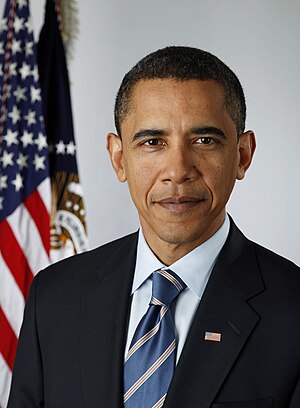
Image via Wikipedia
From theTrumpet.com
U.S. President Barack Obama signed into law a new set of sanctions against Iran over its nuclear weapons program on Thursday evening. The sanctions are aimed at cutting off Iran’s supply of gasoline. Although an exporter of crude oil, Iran imports 30 percent of its gasoline. Though these sanctions are weightier than the recently passed UN sanctions against Iran, their effectiveness remains doubtful. Tehran has responded nonchalantly, considering the measures largely an irritant rather than an obstacle to continuing on its nuclear path. As Stratfor reports, “Unless the United States and its allies attempt a physical naval blockade of Iranian gasoline imports or crude oil exports—an idea that is not even up for discussion—there will remain an abundance of smugglers and shell companies prepared to do business with Iran” (July 2). Stratfor reports that this in fact is already happening. “Several of the big-name corporations that have publicly announced a cessation of trade with Iran,” it says, “are working through a network of third parties to get the goods to Iran and earning a huge premium in the process.” This is more evidence that it is going to take a lot more than sanctions to stop Iran’s nuclear quest.
Germany emerged as the winner of more than just a World Cup game last weekend. The G-20 meeting concluded with an endorsement of the economic policies of German Chancellor Angela Merkel and other European leaders, despite President Obama’s previous criticism of their plans. G-20 nations agreed to a non-binding pledge to halve government deficits by 2013 and to balance budgets by 2016. “To be honest, it was more than I expected,” said Merkel. Germany and the U.S. went into the summit with opposite views on cutting the government debt. Germany got its way.
While the world’s biggest economies are struggling, Latin America appears to be doing rather well. Brazil’s central bank announced on June 29 that the nation’s economy could grow by up to 7.3 percent in 2010. The World Bank recently forecast that the whole region’s economy could grow by 4.5 percent this year. Mexico may grow by over 5 percent, and Peru grew by 9.3 percent over a period of one year, ending in April 2010. These countries are rich in resources. As this region grows in prosperity, expect other countries to increase competition for influence and trade links in the area.

No comments:
Post a Comment